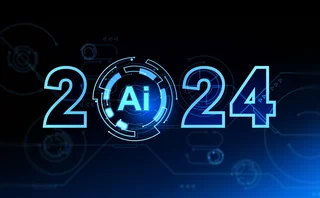Millennials Ruin Many Things, but Not Cybersecurity
The younger generation's knowledge of technology makes them far easier to teach cybersecurity policies to.

Millennials, they say, ruin everything. From the housing market to Applebee’s, it seems the younger generation just has a knack for causing the downfall of one thing or another. And apparently, millennials are also ruining cybersecurity.
At this year’s North American Buy-Side Technology Summit, held on October 5 in New York, Star Mountain Capital’s CTO, John Polis, said the younger generation—that is, millennials—poses a danger to cybersecurity efforts. “The younger generation has a different sense of technology. They’ve grown up with technology, the internet, and they think once you click on something you should be able to get around easily and not really worry about anything,” Polis said. “They’re the ones who probably pose a bigger threat, so we really focus on educating them extensively.”
Polis noted that a work computer is often the first formal and secure access to the internet that millennials encounter, so most interactions they have with technology before that are unencumbered by firewalls.
The generation just now entering the workforce has an understanding of technology that is easy and free to use. When they open their office-issued computers they may be surprised—and even annoyed—that they can’t access all the websites they want to. They may look for ways to bypass those firewalls and, as a result, invite in potential cyber threats. Then again, these assertions may represent a fundamental misunderstanding of how younger generations—many of whom are digitally native—interact with technology.
The younger generation has a more intimate relationship with technology than those born before 1981. It’s ingrained into their brains that the answer to any question is almost always a Google search away. It’s a constant companion in their daily lives, so their ability to use technology is intuitive. This becomes even truer for those born in the 1990s—that difference of a few years saw those people grow up in an always-on environment.
Millennials’ technological savvy, in many ways, actually makes them the easiest to teach how to be safe. They can easily spot when something isn’t right with the programs they run, they regularly update their systems, and they know not to click on every link they see.
They have seen what hackers can do, they have been hacked, and they innately understand the perils of the cloud and the vulnerability of information. They learned early on to be wary of the messages sent to them, and are far less likely to fall for crude phishing schemes than their elders. It’s not theoretical, nor is it something out of William Gibson’s Neuromancer to them—this generation has seen the most technological disruption out of any, and has learned to be safer because of it.
Precautions
Most of the people I know who take the greatest precautions over their data are my age—my mother still thinks that if she erases something on her phone, then it’s gone forever and not stored in the cloud. Taking care of personal data is akin to protecting data from workplaces, particularly in the financial services industry, and many people take great pains to ensure nothing leaks out that can be traced back to them. So again, that’s part one of cybersecurity education taken care of.
This is a generation that understands how technology works and how it can be made better. A lot of innovation, even in cybersecurity, comes from people who see a roadblock and are determined to break that barrier.
That’s not to downplay the trouble cybersecurity officers have faced teaching millennials. Of course, there will always be recalcitrant 20-somethings who think they know everything.
Polis points out that he’s learned to personalize the issue of cybersecurity with the younger people in his firm. Millennials are also the generation that personalizes everything. And if you explain that keeping workplace data safe is keeping you safe, it drives home the point that every information security officer needs to make.
Millennials can listen and be safe. They know technology, so don’t worry, they’re probably not the ones who will bring the house tumbling down.
Only users who have a paid subscription or are part of a corporate subscription are able to print or copy content.
To access these options, along with all other subscription benefits, please contact info@waterstechnology.com or view our subscription options here: http://subscriptions.waterstechnology.com/subscribe
You are currently unable to print this content. Please contact info@waterstechnology.com to find out more.
You are currently unable to copy this content. Please contact info@waterstechnology.com to find out more.
Copyright Infopro Digital Limited. All rights reserved.
As outlined in our terms and conditions, https://www.infopro-digital.com/terms-and-conditions/subscriptions/ (point 2.4), printing is limited to a single copy.
If you would like to purchase additional rights please email info@waterstechnology.com
Copyright Infopro Digital Limited. All rights reserved.
You may share this content using our article tools. As outlined in our terms and conditions, https://www.infopro-digital.com/terms-and-conditions/subscriptions/ (clause 2.4), an Authorised User may only make one copy of the materials for their own personal use. You must also comply with the restrictions in clause 2.5.
If you would like to purchase additional rights please email info@waterstechnology.com
More on Emerging Technologies
Waters Wavelength Ep. 302: Connectifi’s Nick Kolba
Nick joins the show to give his views on trends in the interoperability space and the FDC3 standard.
AI co-pilot offers real-time portfolio rebalancing
WealthRyse’s platform melds graph theory, neural networks and quantum tech to help asset managers construct and rebalance portfolios more efficiently and at scale.
Waters Wavelength Ep. 301: SIX’s Javier Hernani
Javier Hernani, head of securities services at SIX, joins to discuss everything T+1.
Bloomberg debuts GenAI news summaries
The AI-generated summaries will allow financial professionals to consume more data, faster, officials say.
8 bank CTOs and CDOs sound off on artificial intelligence
Waters Wrap: Last year, WatersTechnology spoke with heads of technology and data from a range of tier-1 banks. Anthony pulls at one common thread from those interviews: AI.
Waters Wavelength Ep. 300: Reflecting on humble beginnings
It is our 300th episode! Tony and Shen reflect on how it all started.
An inside look: How AI powered innovation in the capital markets in 2024
From generative AI and machine learning to more classical forms of AI, banks, asset managers, exchanges, and vendors looked to large language models, co-pilots, and other tools to drive analytics.
Asset manager Saratoga uses AI to accelerate Ridgeline rollout
The tech provider’s AI assistant helps clients summarize research, client interactions, report generation, as well as interact with the Ridgeline platform.





